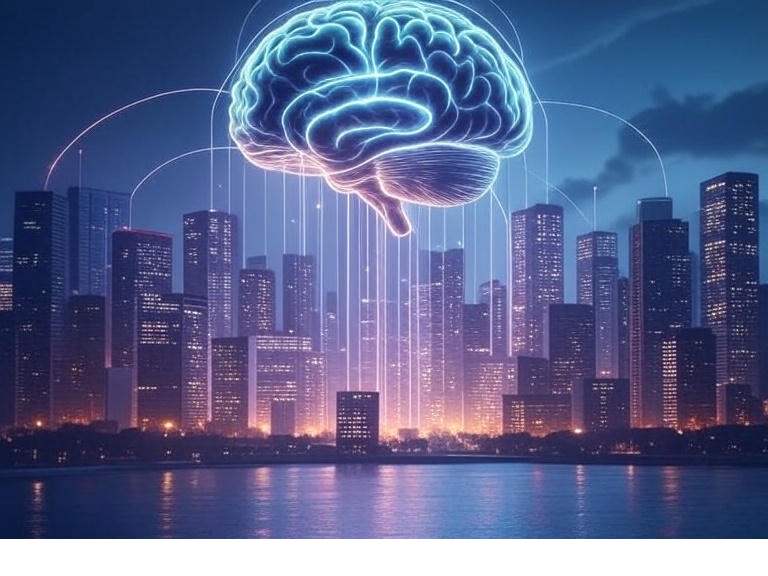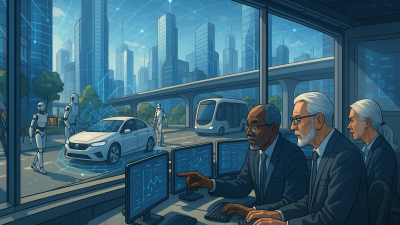The AI revolution is no longer a distant possibility—it’s an unfolding reality, one that’s reshaping industries, geopolitics, and human behavior at an unprecedented pace. Karen Hao, one of the most thoughtful and incisive voices in technology journalism, dives deep into the structures powering artificial intelligence, the rise of AGI evangelists, and the unforeseen costs of placing blind faith in technological progress.
The Power Structure Behind AI
Karen Hao unpacks how artificial intelligence, particularly machine learning models, is not merely a technical phenomenon but one embedded within global power structures. Investment flows, data monopolies, and infrastructure control shape which AI models get built, who benefits from them, and whose risks are ignored. The consolidation of AI into the hands of a few corporations and nation-states amplifies existing inequalities, while the broader public remains unaware of the scale and implications.
The “AI empire,” as some critics term it, is built on enormous datasets, proprietary algorithms, and cloud infrastructures controlled by private entities. These players determine the pace of innovation, accessibility, and even ethics, often sidelining public accountability or democratic oversight.
The Evangelism of AGI: Promise or Peril?
Artificial General Intelligence (AGI) – a machine with cognitive abilities equivalent to or exceeding human intelligence – is both a tantalizing and troubling prospect. Karen Hao explores how AGI advocates, sometimes idealistic and sometimes alarmist, frame it as humanity’s next leap forward. Yet this evangelism masks critical blind spots: insufficient regulation, unchecked bias, and the allure of techno-utopian promises that distract from present harms.
Many proponents view AGI as a salvation narrative—solving climate change, healthcare crises, and education gaps. But this future-focused messaging can lead to misplaced trust in technology to solve deeply human and societal challenges that require governance, empathy, and systemic change.
The Price of Belief in Technology
Blind belief in AI’s capabilities and intentions has real-world consequences. When users, investors, and policymakers overlook the ethical and structural risks of AI development, they inadvertently enable surveillance, exploitation, and misinformation.
Karen Hao warns that unquestioned faith in technology can erode public trust, obscure accountability, and lead to uneven impacts where vulnerable populations bear the brunt. The human cost is not always visible—it manifests in job displacement, privacy violations, or algorithmic discrimination that is difficult to trace but deeply harmful.
A Human Perspective: The Need for Skepticism and Empathy
Technology should serve humanity—not the other way around. Karen Hao’s exploration is a reminder that while AI holds immense potential, it is not infallible. It requires oversight, ethical frameworks, and critical inquiry.
For professionals working in AI, the challenge is balancing innovation with responsibility. For consumers, it’s about informed engagement—asking who controls the tools and whose voices are missing from the conversation. For society at large, it’s a call to remain vigilant, empathetic, and pragmatic in embracing new technologies.
The Impact on Our Daily Lives
AI already touches aspects of our lives—from the algorithms recommending news to personalized healthcare apps. The decisions made today about transparency, accountability, and governance will determine whether AI empowers communities or entrenches inequalities.
Karen Hao’s insights urge us to slow down and question—not out of fear, but out of care for a future where technology enhances human dignity rather than replaces it.
Subscribe to our newsletter for expert insights, in-depth analyses, and thoughtful perspectives on AI, technology trends, and their impact on society. Be the first to understand how innovation shapes our lives—and how you can navigate it with awareness and confidence.
FAQs
1. What does “AI power structure” mean?
It refers to how control over AI’s development, data, and infrastructure is concentrated among a few corporations or governments, influencing how AI is built and who benefits.
2. Who are AGI advocates?
AGI advocates are individuals or groups promoting the development of machines with human-level intelligence, often emphasizing its transformative potential while overlooking associated risks.
3. Why is blind trust in technology dangerous?
Blind trust can lead to unchecked deployment, ethical oversights, and unequal impacts—especially affecting vulnerable groups without proper regulation or public awareness.
4. How can society balance innovation with responsibility?
By fostering ethical AI development, promoting transparency, involving diverse stakeholders, and encouraging critical public discourse around technology’s benefits and risks.
5. What’s the human impact of AI today?
AI influences job markets, healthcare, privacy, and access to information. Without oversight, it can exacerbate inequality, reinforce biases, and undermine trust.
Note: Logos and brand names are the property of their respective owners. This image is for illustrative purposes only and does not imply endorsement by the mentioned companies.



